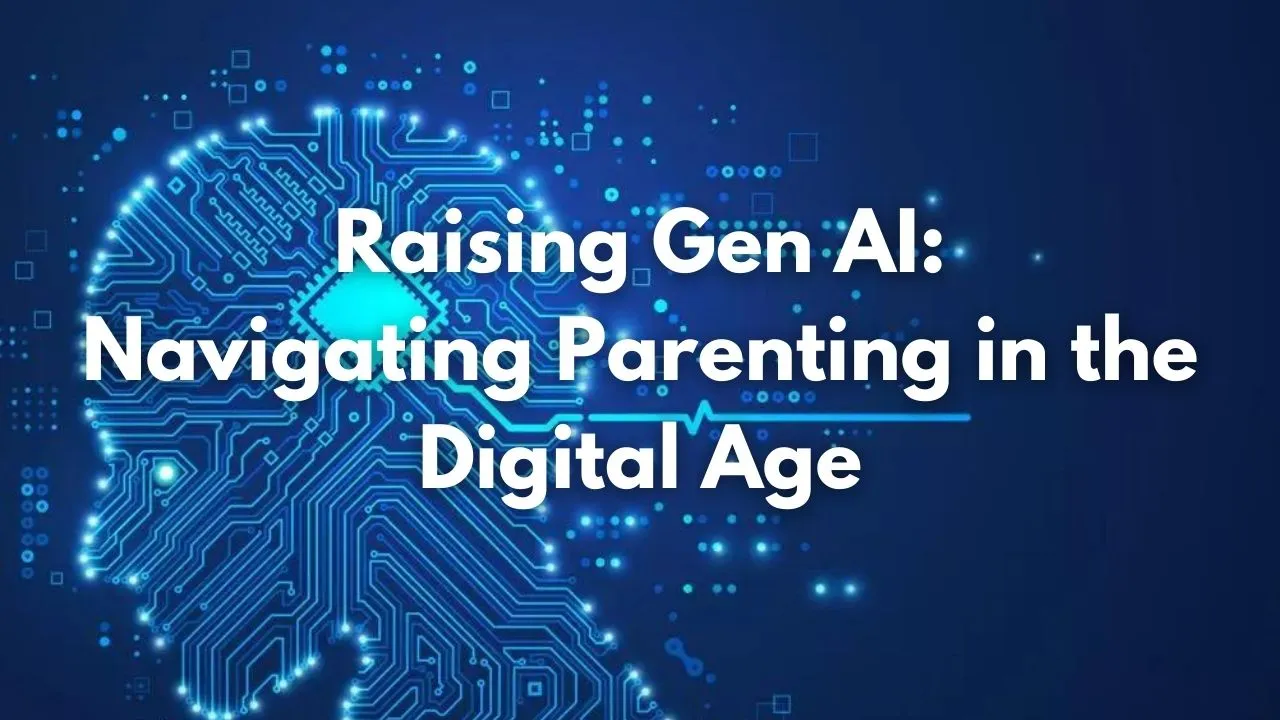Raising Gen AI: Navigating Parenting in the Digital Age
Parenting in the digital age presents a unique set of challenges and opportunities, especially for those raising Generation AI—the first cohort growing up surrounded by artificial intelligence and advanced digital technologies. Navigating the complexities of this era requires a nuanced approach that balances the benefits of technology with the importance of fostering critical thinking, digital literacy, and responsible use of AI-powered tools.
1. Embracing Digital Literacy:
As digital natives, Generation AI is exposed to technology from an early age. Parents play a crucial role in fostering digital literacy by educating their children about the capabilities and limitations of AI. Encourage them to explore educational applications, coding platforms, and interactive tools that enhance their understanding of the technology shaping their world.
2. Setting Boundaries and Screen Time:
In an era of abundant digital devices and AI-driven content, it is essential to establish healthy screen time habits. Set clear boundaries for device usage and promote a balanced approach that includes outdoor activities, in-person interactions, and non-digital forms of entertainment. This helps to foster a healthy relationship with technology from a young age.
3. Teaching Responsible Online Behavior:
Parents should guide Generation AI in practicing responsible online behavior. This involves understanding the implications of sharing personal information, recognizing and avoiding online risks, and promoting positive digital citizenship. Instill the importance of kindness and empathy in online interactions to foster a healthy digital community.
4. Monitoring Content and Privacy:
Stay engaged in your child's online activities by monitoring the content they access and the platforms they utilize. Use parental control features and privacy settings to establish a secure online environment. Discuss the importance of being cautious about the information you share and the potential consequences of oversharing on social media.
5. Encouraging Curiosity and Creativity:
Artificial intelligence (AI) provides a wide range of creative and educational opportunities. Encourage Generation AI to explore AI-powered tools for artistic expression, coding projects, and interactive learning experiences. Nurture their curiosity and creativity by helping them harness the positive aspects of technology for personal and educational growth.
6. Modeling Healthy Tech Habits:
Parents serve as role models for their children's behavior. Demonstrate healthy technology habits by managing your screen time, prioritizing face-to-face interactions, and showcasing responsible use of AI-driven tools. This fosters a positive family culture around technology use.
7. Fostering Critical Thinking Skills:
Empower Generation AI with critical thinking skills to navigate the vast amount of information available online. Teach them to question sources, evaluate the credibility of information, and distinguish between reliable and unreliable content. This skill set is crucial in an era where misinformation is widespread.
8. Emphasizing Offline Connections:
Despite the digital age, offline connections remain essential. Encourage real-world interactions, family activities, and quality time without the use of screens. Balancing online and offline experiences helps to create a well-rounded upbringing that takes into account the diverse aspects of personal and social development.
Conclusion: Nurturing Well-Rounded Digital Citizens:
Raising Generation AI in the digital age requires a thoughtful and proactive parenting approach. By promoting digital literacy, setting boundaries, encouraging responsible behavior, and emphasizing the value of offline connections, parents can cultivate well-rounded digital citizens who can confidently navigate the complexities of the digital world.
